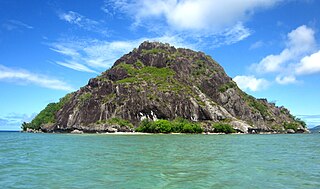This article does not cite any sources .(December 2009) (Learn how and when to remove this template message) |
There have been numerous sugar cane farmers−growers trade unions in Fiji and in the preceding British Colonony of Fiji (1874−1970).
A trade union, also called a labour union or labor union (US), is an organization of workers who have come together to achieve many common goals, such as protecting the integrity of their trade, improving safety standards, and attaining better wages, benefits, and working conditions through the increased bargaining power wielded by the creation of a monopoly of the workers. The trade union, through its leadership, bargains with the employer on behalf of union members and negotiates labour contracts with employers. The most common purpose of these associations or unions is "maintaining or improving the conditions of their employment". This may include the negotiation of wages, work rules, complaint procedures, rules governing hiring, firing and promotion of workers, benefits, workplace safety and policies.

Fiji, officially the Republic of Fiji, is an island country in Melanesia, part of Oceania in the South Pacific Ocean about 1,100 nautical miles northeast of New Zealand's North Island. Its closest neighbours are Vanuatu to the west, New Caledonia to the southwest, New Zealand's Kermadec Islands to the southeast, Tonga to the east, the Samoas and France's Wallis and Futuna to the northeast, and Tuvalu to the north. Fiji consists of an archipelago of more than 330 islands—of which 110 are permanently inhabited—and more than 500 islets, amounting to a total land area of about 18,300 square kilometres (7,100 sq mi). The most outlying island is Ono-i-Lau. The two major islands, Viti Levu and Vanua Levu, account for 87% of the total population of 898,760. The capital, Suva, on Viti Levu, serves as the country's principal cruise-ship port. About three-quarters of Fijians live on Viti Levu's coasts, either in Suva or in smaller urban centres such as Nadi—where tourism is the major local industry—or Lautoka, where the sugar-cane industry is paramount. Due to its terrain, the interior of Viti Levu is sparsely inhabited.
Contents
Some of the Fijian cane growers unions are/were provincially based, as indicated by their names: Nadroga Fijian Cane Growers Association in Nadroga-Navosa Province, the Ra Fijian Cane Growers Association in Ra Province, and the Ba Fijian Cane Growers Association in Ba Province. Other regionally based unions include Labasa Kisan Sangh, the Rewa Planters Union, and the Southern Division Kisan Sangh.

Nadroga-Navosa is one of the fourteen provinces of Fiji and one of eight based in Viti Levu, Fiji's largest island. It is about 2,385 square kilometers and occupies the South-West and Central areas of Viti Levu, Fiji's principal island. The province includes the Mamanuca Archipelago, off the west coast of Viti Levu, Vatulele, as well as the remote Conway Reef in the southwest. The population at the 2017 census was 58,931, being the fifth largest province. The main town in Nadroga-Navosa is Sigatoka, with a population of 9622.

Ra is one of the fourteen provinces of Fiji. Occupying the northern area of Viti Levu, the largest island, it is one of eight Viti Levu-based Provinces. With a land area of 1341 square kilometers, it had a population of 30,432 at the 2017 census. The main urban centre is at Vaileka, with a population of 3,361 in 1996.
Ba is a province of Fiji, occupying the north-western sector of Viti Levu, Fiji's largest island. It is one of fourteen provinces in the nation of Fiji, and one of eight based in Viti Levu. It is Fiji's most populous province, with a population of 247,708 - more than a quarter of the nation's total - at the 2017 census. It covers a land area of 2,634 km2 (1,017 sq mi), the second largest of any province.
Other farmers unions were formed to provide leverage to ethnic sections of the community, such as Indians in Fiji and indigenous Fijian people.